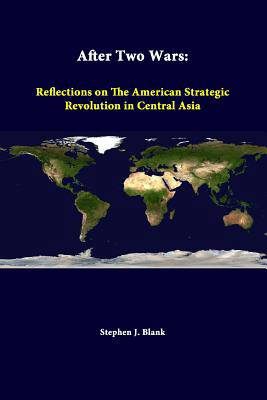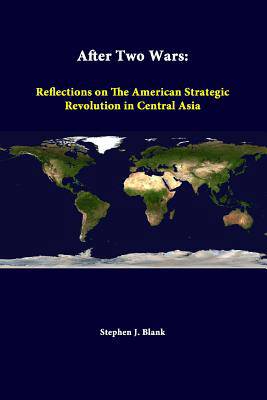
- Afhalen na 1 uur in een winkel met voorraad
- Gratis thuislevering in België vanaf € 30
- Ruim aanbod met 7 miljoen producten
- Afhalen na 1 uur in een winkel met voorraad
- Gratis thuislevering in België vanaf € 30
- Ruim aanbod met 7 miljoen producten
Zoeken
After Two Wars
Reflections On The American Strategic Revolution In Central Asia
Stephen J Blank, Strategic Studies Institute
Paperback | Engels
€ 21,95
+ 43 punten
Omschrijving
In the course of its wars in Afghanistan and Iraq, the U.S. military has deployed forces to hitherto undreamt of destinations in Central Asia and the Caucasus. These deployments reflect more than the exigencies of specific contingencies, but rather are the latest stage in a revolution in strategic affairs that has intersected with the coinciding revolution in military affairs. Thanks to the linked developments in these two processes, the Transcaspian area has now become an area of strategic importance to the United States for many reasons, and not just energy. In this monograph, Dr. Stephen Blank explains how this newly won access to the Transcaspian has come about and why it will remain important to the United States. He then offers analysis and recommendations as to how we might retain access to deal with future contingencies. By examining intersecting geopolitical and strategic trends, Dr. Blank carries on the Strategic Studies Institute's mission of providing timely and relevant analysis...
Specificaties
Betrokkenen
- Auteur(s):
- Uitgeverij:
Inhoud
- Aantal bladzijden:
- 68
- Taal:
- Engels
Eigenschappen
- Productcode (EAN):
- 9781312318854
- Verschijningsdatum:
- 30/06/2014
- Uitvoering:
- Paperback
- Formaat:
- Trade paperback (VS)
- Afmetingen:
- 152 mm x 229 mm
- Gewicht:
- 113 g

Alleen bij Standaard Boekhandel
+ 43 punten op je klantenkaart van Standaard Boekhandel
Beoordelingen
We publiceren alleen reviews die voldoen aan de voorwaarden voor reviews. Bekijk onze voorwaarden voor reviews.











